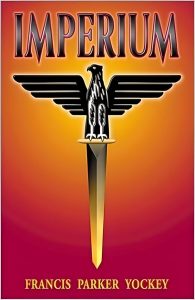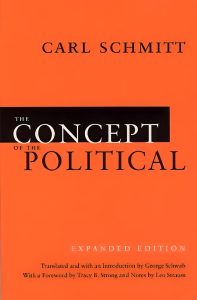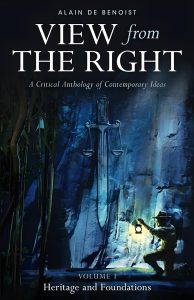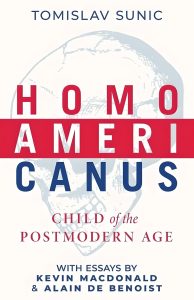As part of an upcoming series from Arktos contributors and editorial staff, we will each be putting together a list of our top five books that have informed our political worldviews. In a world saturated with diverse ideologies and complex socio-political dynamics, the formation of an individual’s political worldview is a deeply personal and intellectually engaging journey. Books, as vessels of knowledge, wisdom, and perspective, hold the power to shape and refine our understanding of the intricate tapestry of human societies and governance systems.
In an age of digital connectivity and rapid information dissemination, books remain timeless repositories of insight and analysis. They challenge preconceived notions, ignite critical thinking, and offer alternative narratives that widen our intellectual horizons. As I share the titles that have significantly contributed to the molding of my political ideology, it becomes evident that these books are not mere sources of information, but rather active participants in the ongoing dialogue of global politics.
In the ensuing sections, each of the five selected books will be introduced and analyzed in detail, tracing their influence on the evolution of my political consciousness. As we navigate the landscapes of these literary works, it is my hope that readers will find resonance in their own intellectual explorations and be inspired to delve into the rich world of literature to inform their own political worldviews. In no order of importance, let us begin.
1. Imperium (1948) by Francis Parker Yockey
Francis Parker Yockey’s Imperium is a provocative and controversial political treatise that challenges conventional notions of history, culture, and governance. Published in 1948, Yockey critiques the decline of Western civilization and advocates for a new, transcendent order rooted in a pan-European identity. He emphasizes the necessity of a united, authoritarian imperium to counteract the forces of liberalism, democracy, and materialism that he sees as undermining traditional European values. Yockey’s complex work weaves together geopolitics, Spenglerian and Schmittian cultural and political analysis, and a call for a radical reconfiguration of global power dynamics, making Imperium a contentious and thought-provoking contribution to political thought. Yockey provided a foundation for the post-war right in Europe and his influence lives on in the likes of the European New Right and Dugin’s Neo-Eurasianism.

2. The Concept of the Political (1932) by Carl Schmitt
Carl Schmitt’s The Concept of the Political presents a seminal exploration of the essence of politics. In this concise yet profound work, Schmitt contends that the defining characteristic of the political realm is the fundamental distinction between friend and enemy. He argues that political actions and decisions are shaped by the recognition of a potential adversary and the willingness to engage in conflict, if necessary. Schmitt’s critique of liberal universalism and his emphasis on the role of sovereignty have ignited debates about the nature of political communities, challenging traditional notions and inviting scholars to reconsider the dynamics that underpin human interactions on a global scale.

3. View from the Right (1977) by Alain de Benoist
This is somewhat cheating since Alain de Benoist’s Vu de droite has been translated into three volumes. View from the Right is one of the seminal texts of the European New Right and lays out a foundation for an all-encompassing political worldview. It reads like an encyclopedia that covers a wide range of topics from psychology to history to science to politics along with profiling several key political philosophers and their ideas. It is a treasure trove of information and offers an encyclopedic history of ideas that addresses the philosophical, spiritual, scientific, and cultural-historical foundations of the European heritage. Given its encyclopedic nature, I find myself constantly flipping through it, seeking out sections to revisit certain ideas or concepts. Alain de Benoist has written a lot, much of which remains untranslated into English. If you’re looking for only one book of source material on European New Right thought, then read View from the Right since it provides an expansive amount of information on ideas and concepts that continue to be influential on European New Right thought.

4. Archeofuturism (1998) by Guillaume Faye
Guillaume Faye’s Archeofuturism is one of the first books I read from the tradition of the European New Right, and it truly blew my mind. It presents a bold fusion of traditionalism and futurism, envisioning a radical reconfiguration of society. The first entry of many in the second phase of Faye’s return to the political realm, Faye advocates for a synthesis of ancestral values and advanced technology to counter the perceived decline of Western civilization. He proposes a rejection of egalitarianism, multiculturalism, and globalism in favor of ethno-cultural preservation and sustainable progress. Faye’s vision is provocative, suggesting that by embracing a new aristocracy, localism, and a return to nature, humanity can navigate the challenges of the future while honoring its historical roots. Archeofuturism sparks discourse on forging a harmonious path between tradition and innovation.

5. Homo Americanus: A Child of the Postmodern Age (2007) by Tomislav Sunic
In my opinion, this is Sunic’s best work. In Homo Americanus, Sunic provides an intellectual examination of what we call “Americanism,” delving deeply into the origins and dynamics of America’s founding myths and their impact on contemporary America. He provides an in-depth anthropological study of the United States and provides further commentary on the self-destructive path that the United States is currently embarked on. Sunic gives warning that America’s theories of multiculturalism and desire to “improve the world” puts not only America’s European heritage at risk, but the entirety of humanity. With the United States being the epicenter of globalism, it is important to understand the American mind and way of being in the world so that we can better defeat it going forward.

Honorable Mentions: The Culture of Narcissism by Christopher Lasch, Against Democracy and Equality by Tomislav Sunic, New Culture, New Right by Michael O’Meara, The Fourth Political Theory by Alexander Dugin, The Hour of Decision by Oswald Spengler, I’ll Take My Stand by the Southern Agrarians, On Power by Bertrand de Jouvenel, The Culture of Critique by Kevin MacDonald, On the Genealogy of Morals by Friedrich Nietzsche, and Multiculturalism and the Politics of Guilt: Towards a Secular Theocracy by Paul Gottfried








These editor picks are really good to read. They inspire me to read the ones I haven’t read yet and to think about what has shaped *me* and my own thought.
I look forward to seeing more of these!
They also give us the courtesy of a summary to decide how to prioritize them!